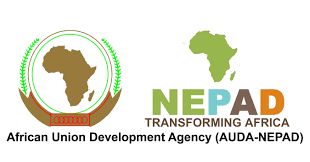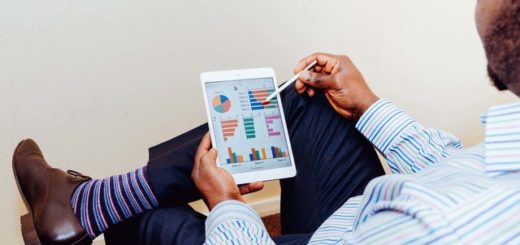Terms of Reference: Baseline considering Climate Vulnerability of Social and Ecological Systems and Gender aspects in Western Kenya
l. INTRODUCTION AND BACKGROUND
In Western Region of Kenya, climate change particularly affects the agricultural production systems. The large majority of the population in the project region are smallholder farmers under increasing pressure through demographic growth and soil degradation. The adaptive capacity to climate change in the region is low due to various factors such as widespread poverty and gender inequality, high pressure on already degraded and overexploited natural resources, in particular land, as well as resulting conflicts, and high levels of unawareness about climate change in general. Conflict and violence remain ever-present in its structural form exemplified by withholding of diminishing patronage resources such as land, water and welfare entitlements based on ethnicity or family affiliations. Adopting Agro-ecology and acquiring food and income can provide spaces for women to work in solidarity and gain livelihoods and support. This will also empower them to have more confidence to do political work and challenge unjust laws, including customary laws in their communities.
Against this background, the project Enhancing Climate Change Resilience and Adaption Among Smallholder Farmers (ECCRAS) in Western Kenya financed by the Austrian Ministry for Climate, Environment, Energy, Mobility, Innovation and Technology (BMK) is implemented by a consortium consisting of Austrian organization Sei So Frei Salzburg (SSF Salzburg) and Development Education Services for Community Empowerment (DESECE) between 01.07.2021 and 30.06.2025. HORIZONT3000 has been commissioned by SSF Salzburg, to support the implementation of this project through its regional office in Kampala.
Development Education Services for Community Empowerment (DESECE) is a registered Non-Governmental Organization (NGO) based in Mukuyuni, Bungoma North Sub County in Bungoma County, Kenya. It started in 1993 as a Community-Based Organization (CBO). DECESE focusses on Leadership and Capacity Building integrating Sustainable Organic Agriculture (AgroEcology), Gender equality and Human Rights through Civic Education and Policy Dialogue in their holistic grassroots approach.
Sei So Frei Salzburg is an Austrian organization and a constituting member of HORIZONT3000, an Austrian non-governmental organization specialized in supporting the implementation of programmes and projects and the deployment of technical assistance personnel to support organizations and people in partner countries in their aspiration to improve the quality of their lives in a sustainable and human way.
Since data about vulnerability and the level of and the capacities for climate change adaptation of small-scale farmers in particular with a focus on resource-based conflicts and gender inequality in Kenya is scarce, a baseline study shall be conducted to describe the current situation around vulnerability to climate change and adaptive capacity of rural farming communities and taking into account gender aspects to inform project implementation and enabling the project team to identify improvements along the way.
Objectives and indicators of the action
Overall Objective: Enhance the adaptive capacity among smallholder farmers towards the effects of climate change and thereby ensuring sustainable livelihoods in Counties of Bungoma and Trans Nzoia in Western Kenya.
Specific Objective: Promoting climate resilient farming, ecosystem and biodiversity conservation and the resolution of resource-based conflicts to reduce overall climate risk of smallholder farmers
Target group(s): The project benefits 1508 direct beneficiaries (688 male, 820 female), including smallholder farmer groups, pupils/students, teachers/instructors, parents and school security guards in Bumula, Bungoma south, Kimilili, Mt. Elgon, Bungoma north from Bungoma county and Trans- West sub-county from Trans Nzoia county.
Final beneficiaries
The project works through the train the trainer concept, where the trained trainees in turn become trainers. Indirectly, 3,360 people (40% m / 60% f) will benefit from the project.
Estimated outputs R1: Smallholder farmers applying climate resilient agriculture, water and ecosystem conservation practices to ensure their food sovereignty as well as their income. R2: Schools and vocational training centers show-casing climate resilient agriculture, water and ecosystem conservation practices, providing intergenerational practical learning experiences for students and parents and complementing school lunches.
R3: Farmer groups using human rights-based approaches and gender focus for improved resolution of resource-based based conflicts.
III. OBJECTIVE OF THE CONSULTANCY
The consultancy contributes to the understanding of the socio-economic-environmental system and the level of climate vulnerability in six sub-counties in Bungoma and Trans Nzoia west subcounty (Bumula, Bungoma south, Kimilili, Mt. Elgon, Bungoma north from Bungoma county and Trans- West sub-county from Trans Nzoia county). Specifically, the baseline situation of the project will be established with emphasis on climate vulnerability of social and ecological systems in the project intervention communities, identifying specific areas and social groups with high
levels of vulnerability, taking into account gender aspects and high priorities for action and entry points to promote good practices. The baseline will identify specific areas and social groups with high levels of vulnerability, high priorities for action and entry points for promoting good practices.
IV. EXPECTED OUTPUTS
The consultant shall present the following products with the specifications set out below, without this being a limitation for him/her, with his/her own experiences and initiatives, to suggest additional elements and variants of the same to improve the quality and the expected result of each product.
All activities to be carried out by the consultant must be implemented in accordance with the COVID-19 protection protocol to prevent the spread of the virus in the community in the project’s area of incidence.
Initial Report including:
• The work plan and timeline of activities
• Participatory methodological proposal that combines bottom-up, participatory, indicator-based approaches, combining traditional, empirical knowledge with scientific information from existing climate studies and models complemented with socio-economic data. The proposal should define in detail the methodological route for the evaluation, including the data collection tools, to obtain primary information from key stakeholders disaggregated
by gender and age of the project mentioned above, including demographic, socio-cultural, socio-economic, gender and socio-environmental aspects, as well as the sampling design, considering the representativeness of the sample and the size according to the total population of the communities affected by the project.
• Indicators formulated on the basis of the project indicators that allow the monitoring and evaluation of the project interventions (relevant baseline variables, development and monitoring instruments of indicators with the measurement values used in the data collection).
Final Report including:
• Executive summary
• Report including methodological approach and detailed characterization and systemic analysis of the following areas (non-exhaustive list):
• The current situation of the project indicators as well as vulnerability indicators of social and ecological systems constructed on the basis of the project indicators in the project communities in the counties of Bungoma and Trans Nzoia with the purpose of synthesizing lessons learned in the past.
• Climate Change Adaptation: what measures/actions are already being implemented and what changes are being observed in social and ecological systems, as well as identification of mitigation measures implemented by communities within the project’s area of influence.
• Characterization of current and historical use of ecosystems and natural resources (timelines): who uses, what they use, how they use (technique, technology) and how much with focus on how the use of natural resources affects conflict in the target region and which conflicts can be characterized as resource-based.
• Gender Equality: Climate change affects women and men differently, as women may be more vulnerable to climate impacts, this has to be taken into account during the study in order to ensure that adaptation strategies are designed in an inclusive way for all vulnerable people to have equal access to resources, rights and opportunities.
These include, but are not limited to, considerations such as social and economic status, wealth, involvement in decision-making processes, access to productive and financial resources, risks, socio-cultural exclusion, property ownership, access and control, power relations or specific needs of women and girls. Causes, effects and
impacts of such gender disparities and inequalities are thereby identified and respective coping mechanisms, adaptation and resilience strategies aligned to reduce climate risks for women and girls.
• Governance systems in relation to climate change adaptation, resilience building and the use and management of ecosystems and natural resources including protected areas paying special attention to the gender equity situation, distribution of roles, responsibilities, decision making, etc.
• Climate system to know the changes in the climatic conditions of the ecosystem and the local biodiversity in function of the agricultural productive systems.
• Incentives (economic, social, legal, etc.) that drive/could drive ecosystem/natural resource user behavior.
• Socio-cultural and economic context of farming communities: dependence on natural resources, poverty level, worldview, etc. with special attention to gender equity situation, role distribution, responsibilities, decision-making. Future vision of the population of their climate-adapted territories.
• Additional information collected through household socio-economic surveys and focus groups on productive/economic activities, current and traditional knowledge and practices related to ecosystem use and management, and information on demographic development, combined with the use of available local climate simulations.
Annexes
• Methodological tools and processes used in digital format.
• Documentation generated during the data collection (photos, videos, recordings, flipchart,
maps, etc.)
• List of References
V. REPORTING:
The reports must be written in English language, the delivery dates of the reports will be defined at the negotiation stage with the selected consultant according to the approved work plan, schedule and duration of the consultancy.
The consultant team will submit the initial assessment (baseline) and final report as required by the contract.
VI. METHODOLOGY
The consultant team should consider a broadly participatory methodology at territorial level such as the community-based risk screening tool (CRiSTAL1) and participatory methods and tools (inspired by CARE 20092 and Tearfund 20123) based on a process of consultation and construction of information with the different key actors.
The consultant is expected to use both quantitative and qualitative data collection and analysis techniques including among others document review and baseline survey using structured questionnaires, focus groups, etc. Households to be interviewed will be randomly selected among the farming communities in the target villages. To involve and train the project staff in the methodological instruments has to be included in order to enable continuous progress monitoring.
Comparing scientific and empirical data, both current and historical, will help to integrate different voices, perceptions, experiences and trends and at the same time sensitize participants.
VIII. CONSULTANCY REQUIREMENTS
A multidisciplinary consulting team with gender equity with professionals in environmental careers (Agro-Ecology, Organic Agriculture, Agroforestry, Biodiversity conservation, or a similar and relevant career) and with experience in climate vulnerability assessment and studies oriented to this topic and knowledge in gender sensitive facilitation.
The members of the consulting team must have the capacity for systemic analysis, the ability to communicate with the population in their native languages (English, Kiswahili). Experience to work with smallholder farmers in rural Kenya will be an added advantage. The facilitation team must work in a gender-sensitive manner and include both men and women in order to address gender equality and the specific situation of women and girls in the context of climate change effectively.
Selection criteria will encompass experience and or knowledge in: climate change; policy and institutional analysis; scientific expertise in relevant sectors; facilitation of participatory processes; gender and diversity; conflict management; Qualitative interviewing.
IX. DURATION, PLACE AND SUPERVISION OF THE CONSULTANCY
The consultancy will have a duration of approx. 15-20 calendar days and shall take place between January and February 2022.
The service delivery sites will be the municipalities Bumula, Bungoma south, Kimilili, Mt. Elgon, Bungoma north in the county of Bungoma and Trans-West sub-county in Trans Nzoia county.
X. FEES
The available budget is between 5000 and 6500 EUR, the fee should be indicated in Euro (lump sum) inclusive of all costs relating to the assignment like consultant fees, travel, insurance, accommodation, food and taxes. Costs for meetings and focus group discussions will be covered.
The payment of fees is established under the following conditions:
50% upon signing of contract
50 % after final approved report.
XII. EXPRESSION OF INTEREST
Interested and qualified individuals/firms are requested to submit the following:
1. A technical proposal with a clear methodology and sampling procedures;
2. A separate financial proposal (including all cost breakdowns – professional fees, logistics, operational costs etc.);
3. Curriculum vitae with two references.
The offer should be submitted until January 5 by email to the following addresses:
• Mbubi Solomon (HORIZONT3000): solomon.mbubi@horizont3000.org
• Bey Ulrike (HORIZONT3000): ulrike.bey@horizont3000.at








